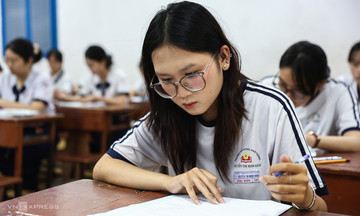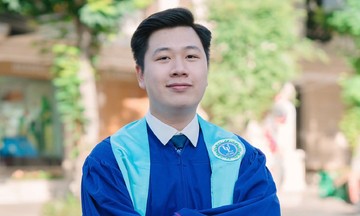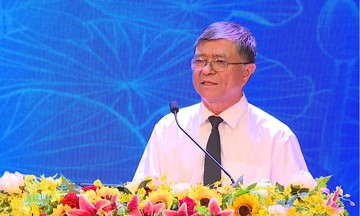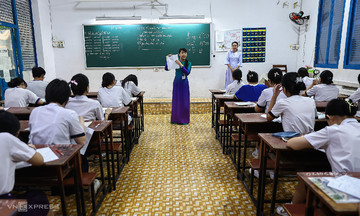Nhan received news in March that he had won the Oxford scholarships, each worth GBP 250,000 (approximately 8.7 billion VND). The scholarships are for the Life Sciences and Environmental Sciences program and the Biology program. Oxford is ranked 4th in the QS World University Rankings 2026.
Nhan also received a fully funded Research Training Program (RTP) scholarship from the Australian government at the University of Western Australia (UWA).
"My dream of studying at the world's leading universities has finally come true. I have chosen to pursue a PhD in Biology," he said.
Late last year, Nhan graduated top of his class with a master's degree in Agricultural Science from UWA's School of Agriculture and Environment, achieving a GPA of 88/100.
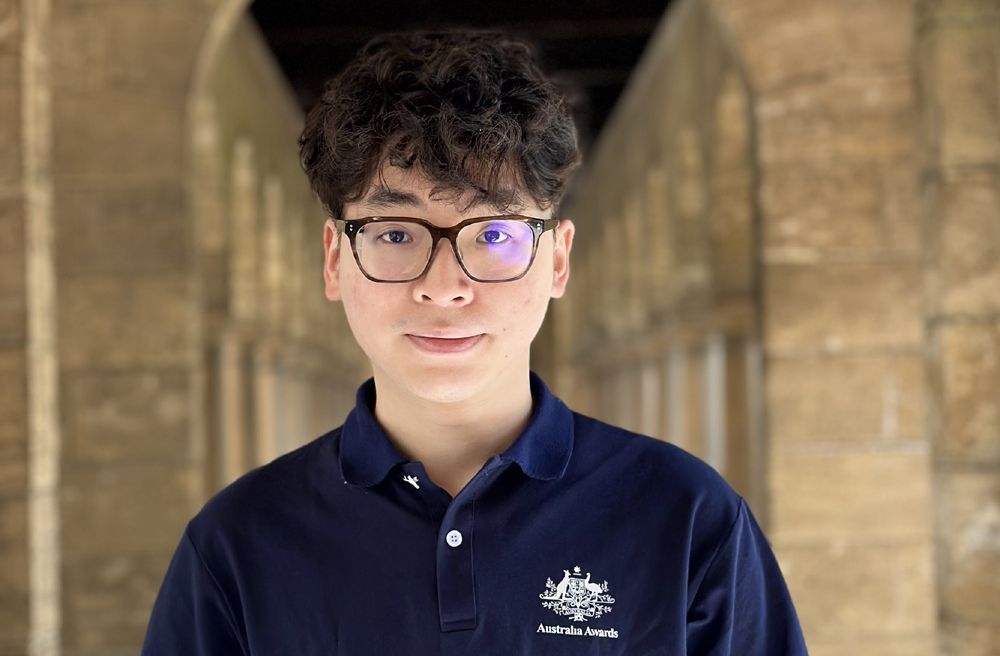 |
Dao Trong Nhan. Photo: Provided by Nhan |
Dao Trong Nhan. Photo: Provided by Nhan
Nhan, a former Biology student at Hanoi National University's College of Science, admitted to neglecting his studies in his early undergraduate years, resulting in mediocre results. By his third year, inspired by classmates receiving scholarships to study abroad and his English teacher's stories of students worldwide, he found his motivation. He joined the Genetics department, focusing his thesis on a rice gene family's adaptation to harsh environmental conditions. Nhan explained that rice has multiple mechanisms to respond to environmental stressors like salinity, drought, and flooding. His research used Real-time PCR to evaluate gene activity under these conditions, assessing the expression of a gene family directly involved in water and solute transport in rice. His thesis scored 9.4/10.
After graduating in 2019, Nhan didn't immediately apply for government scholarships, recognizing his limited GPA of 2.89/4 and lack of substantial work and research experience. He worked at the Institute of Food Crops and Food Plants (Ministry of Agriculture and Rural Development), then the Institute of Biotechnology (Vietnam Academy of Science and Technology). Nhan contributed to a project using gene editing to enhance salt tolerance in rice, co-authoring two articles published in Planta and Plant Cell, Tissues, and Organ Culture, both Q1 (top-tier) journals in plant biotechnology.
In 2022, with three years of work experience and an IELTS score of 7.5, he secured an Australia Awards Scholarship (AAS) for a master's degree at UWA. There, he co-authored a paper published in the Q1 journal The Plant Journal, focusing on RNA (a crucial molecule in cells) editing in plants.
Despite receiving the Australian government's PhD scholarship, Nhan still aimed for top UK universities. He applied to two Oxford PhD programs. His application included an essay and research proposal. The Biology program essay didn't specify a topic but required applicants to address their reasons for choosing Oxford, and their professional and research experience.
Nhan began his essay by stating his goal: to become an expert in applying biotechnology to develop climate-resilient crops by 2050. Growing up in rural Hai Duong, he witnessed annual natural disasters and floods impacting agriculture, fueling his desire to use his expertise to mitigate these effects for farmers. "Biotechnology, plant science, and agriculture are the most suitable research areas for me to realize this idea," he stated, outlining his journey of building knowledge, work experience, and research skills since university.
"I demonstrated to the committee the consistency of my pursuits over the past 5-7 years," Nhan said, attributing his essay's strength to its clear, consistent focus. Two months later, he was invited for an hour-long interview with three professors, covering his expertise, problem-solving skills, independent and teamwork abilities, and time management.
"This is a well-deserved achievement, reflecting exceptional effort, perseverance, and a clear strategy," commented Dr. Do Tien Phat, Head of the Plant Cell Technology Department at the Institute of Biotechnology, who wrote Nhan's recommendation letter. According to Phat, during his time at the Institute, Nhan contributed to projects developing and applying gene-editing technology in fundamental gene function research and crop improvement.
"Nhan's strengths are his language skills, proactiveness, creativity, and especially his professionalism and integrity in conducting research," he said.
This September, Nhan will begin his 4-year PhD program at Oxford. Post-graduation, he plans to pursue a career in teaching, mentoring students, and continuing his research.
Binh Minh



